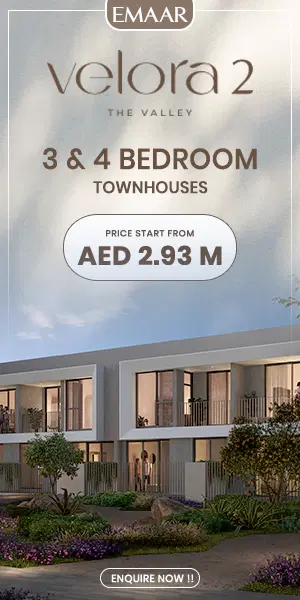Understanding Sharing Accommodation Rules in Dubai
Sharing accommodation is a popular housing solution in Dubai, particularly among expatriates and young professionals who are in need of affordable living arrangements in the city’s competitive rental market.
According to a 2024 rental trends report, shared apartments account for over 30% of rental listings in key areas like Bur Dubai and Al Nahda. However, failing to understand the sharing accommodation rules in Dubai can lead to serious legal consequences, including fines and eviction.
This blog outlines the essential legal requirements, variations across property types, and practical tips for compliance. With 2025 enforcement measures tightening, staying informed is more crucial than ever for tenants and landlords.
What Are the Essential Sharing Accommodation Rules in Dubai?
However, understanding the sharing accommodation rules in Dubai is vital for both landlords and tenants to avoid legal violations, financial penalties, and potential eviction.
Who Is Legally Allowed to Share?
According to government guidelines, only individuals of the same gender may share accommodation if they are unrelated. Mixed-gender sharing is only permissible for immediate family members, such as spouses, siblings, or parents and children.
The rule is significant in shared units, such as villas or converted apartments, to maintain privacy and cultural standards.
Occupancy Limits and Safety Standards
Shared apartment rules in Dubai impose strict occupancy limits. Each occupant must have at least 40 square feet (approximately 3.7 square meters) of personal space. Overcrowding, which includes converting living rooms or kitchens into bedrooms, is considered a violation and can trigger penalties.
Dubai Municipality inspectors frequently visit areas known for shared housing to ensure ventilation, hygiene, and structural safety are maintained.
Legal Licensing and Ejari Registration
Properties intended for shared use must be licensed and comply with RERA's requirements. Furthermore, Ejari registration for shared accommodation is compulsory. Every occupant should be named on a valid tenancy contract, enabling accountability and legal clarity.
Lease Agreements for Shared Tenancy
The renting rules for multiple tenants Dubai enforces require that landlords specify all tenants in one unified contract or issue individual contracts per room. It is to ensure transparency and protect the legal rights of all parties involved.
How Do Dubai’s Regulations Affect Shared Accommodation Tenants?
The growing trend of shared housing in Dubai offers a practical solution to the city’s rising rental costs, especially for expats and young professionals. However, tenants must be aware of the Dubai shared housing regulations, which outline their responsibilities and rights while also setting clear consequences for violations.
Understanding the rules helps tenants protect themselves legally and enjoy a safer, more stable living environment.
Key Points to Consider
Tenants must be legally registered: Every tenant should be listed in the Ejari system. Living in a unit without being officially named on the tenancy contract can lead to eviction and fines.
Shared accommodation contracts must be legitimate: Tenants should ensure the property is legally approved for sharing. If the landlord has not obtained the necessary licenses, all tenants could be penalized.
Privacy is protected under the law: Tenants are entitled to a secure and private living environment. Landlords are not allowed to intrude on personal spaces without notice or permission.
Occupancy limits are enforced: Each tenant must have at least 40 square feet of personal space. Exceeding this limit constitutes a violation and can trigger inspections or fines.
Violations can be costly: Tenants who knowingly or unknowingly violate the sharing accommodation rules in Dubai may face fines between AED 10,000 and AED 50,000. Repeated offenses can even lead to visa complications or eviction.
Tenants should verify the property’s status, request official documentation from landlords, and consult legal resources or RERA-approved agents to ensure compliance. Staying informed and vigilant is the best way to secure a safe and lawful tenancy.
What Are the Obligations of Landlords Regarding Sharing Accommodation in Dubai?
The landlord responsibilities in Dubai shared housing are clearly outlined by RERA and the Dubai Municipality to ensure transparent and regulated property management.
Legal Requirements and Licensing
Landlords must secure official approval before converting or leasing units for shared accommodation. The property must be classified as a multi-occupancy dwelling and meet all criteria for shared tenancy. A license from the Dubai Land Department (DLD) and registration with the Ejari system are mandatory.
Tenant Screening and Contracts
Proper tenant screening is essential. Landlords are expected to verify the legal status of each tenant, including visa validity and employment. Every individual residing on the property must be included in the tenancy contract or added through a sublease approved by the primary tenant. This ensures protection for all parties and honors the tenant rights in shared rentals in Dubai.
Maintenance and Occupancy Compliance
The landlord must maintain hygienic, safe, and habitable conditions. Furthermore, they must adhere to occupancy limits—no more than three people per room or as specified by Dubai Municipality guidelines.
Penalties for Non-Compliance
Landlords who violate these rules in Dubai may face fines ranging from AED 10,000 to AED 50,000, license revocations, or even property seizure in severe cases. Compliance ensures not only legal protection but also long-term sustainability in Dubai’s competitive rental market.
What Are the Common Penalties for Violating Sharing Accommodation Rules?
Dubai enforces its sharing accommodation rulesstrictly to maintain safety, hygiene, and orderly living conditions. Violating these rules can result in serious legal consequences for both tenants and landlords.
Types of Penalties Imposed
Authorities like the Dubai Municipality and RERA impose structured penalties depending on the severity of the violation. Common violations include overcrowding, unregistered occupants, and subletting without authorization. The penalties for violating Dubai housing laws range from administrative fines to criminal liability in extreme cases.
Minor violations, such as exceeding occupancy limits, typically incur fines between AED 10,000 to AED 20,000.
Serious breaches, such as unauthorized subletting or illegal partitioning, may result in property seizures or closure orders.
Repeat offenders may face escalated penalties, including blacklisting or visa complications.
Impact on Tenants and Landlords
Tenants found living in unregistered accommodations risk visa issues, forced eviction, and being blacklisted from renting in the future.
Landlords may lose leasing privileges, face suspension of their rental license, or have to pay steep fines for repeated violations.
Inspection Procedures
Enforcement agencies conduct surprise inspections, often prompted by neighbor complaints or community monitoring systems. All residents must present valid tenancy contracts during inspections.
Common Violations and Penalties
Violation Type | Penalty Amount (AED) | Consequence |
Exceeding occupancy limit | 10,000 – 20,000 | Fine, warning notice |
Unauthorized subletting | 20,000 – 50,000 | Fine, eviction order |
Illegal partitioning of units | 30,000 – 75,000 | Fine, structural removal |
Non-Ejari registration of tenants | 15,000 – 25,000 | Fine, legal liability |
Repeated offenses | 50,000+ | License revocation, blacklisting |
How Can Tenants and Landlords Ensure Compliance with Shared Accommodation Laws?
Staying compliant with Dubai rental laws for roommates and the latest Dubai Housing Laws 2025 updates is critical to avoiding penalties and ensuring a secure living environment. Here’s how tenants and landlords can actively uphold legal standards for shared accommodation in Dubai.
Verify the Legal Status of the Property
Before entering into any agreement, tenants should confirm that the property is licensed for shared accommodation. Ask the landlord to provide proof of municipal approval and check if the property is listed as a multi-tenant facility. This helps avoid illegal arrangements and future disputes.
Prioritize Ejari Registration
Ejari registrationis not optional. Every rental contract must be officially recorded through the Ejari system, including for each tenant in shared housing. This provides legal protection, confirms the validity of the lease, and ensures compliance with RERA.
Clear Communication of Rules and Responsibilities
Both landlords and tenants must openly discuss occupancy limits, subletting clauses, and maintenance duties. All such terms should be documented in the tenancy agreement. This prevents misunderstandings and ensures both parties know their legal obligations.
Use Government Resources and Legal Consultation
Dubai’s official portals, such as the Dubai REST App and the Dubai Land Department (DLD) website, offer tools for verifying property registration, license status, and occupancy permits. When in doubt, seeking legal advice can prevent serious compliance issues.
Leverage Technology for Compliance
Real estate platforms integrate tools that help landlords track occupancy limits and maintain legal documentation. Tenants can also use these platforms to find compliant housing and avoid illegal setups.
What Recent Updates Have Been Made to Sharing Accommodation Rules in Dubai (2025)?
Dubai’s legal framework for shared living has evolved significantly in 2025. These updates refine the legal requirements for shared accommodation in Dubai and offer more explicit guidance and stronger protections for both landlords and tenants.
Clearer Subletting Regulations
Article 24 of Law No. 26 of 2007, reinforced in 2025, now mandates explicit written landlord consent for any subletting or co-sharing arrangements. Without it, tenants risk eviction and landlords may pursue legal action.
Heightened Occupancy Standards
Municipal authorities have reaffirmed minimum living space requirements—no less than 40 square feet per tenant and a maximum of three occupants per bedroom. These limits aim to maintain hygiene and prevent overcrowding .
Expanded Ejari Responsibilities
RERA has updated Ejari procedures, requiring tenancy contracts to specify that the unit is approved for shared accommodation. This ensures all roommates are legally registered, reducing unauthorized occupancy.
Increased Fines and Enforcement
Penalties for violations have grown steeper. Fines for unauthorized sharing, subletting, or breaches of occupancy can reach AED 50,000. Authorities now perform more frequent inspections and swift corrective measures.
Tenant Rights and Contract Transparency
New tenancy clauses ensure clear communication about shared living terms—covering responsibilities, financial contributions, and dispute resolution. This fosters better relationships and legal clarity between co-tenants and landlords.
Wrapping Up: Why Following Sharing Accommodation Rules in Dubai Is Crucial for Everyone
Following sharing accommodation rules in Dubai is essential for both tenants and landlords to avoid serious consequences such as fines, eviction, or loss of property licenses. Legal compliance ensures everyone enjoys a secure, hygienic, and regulated living space.
Clear agreements and open communication help build respectful, long-term relationships between co-tenants and property owners. With the growing demand for shared housing, especially among expats and professionals, adhering to updated regulations is more important than ever.
Staying informed through government platforms and consulting real estate experts can prevent misunderstandings and protect your rights. Responsible sharing supports a more sustainable and lawful housing environment in Dubai.
Feature Properties
You Might Also Like
Stay in the loop Through our newsletter
Get to know about the latest real estate insights.
Popular Searches
Off Plan Projects
Popular Areas
About Us
Popular Searches
Off Plan Projects
Popular Areas
Next Level © 2026 All Right Reserved









